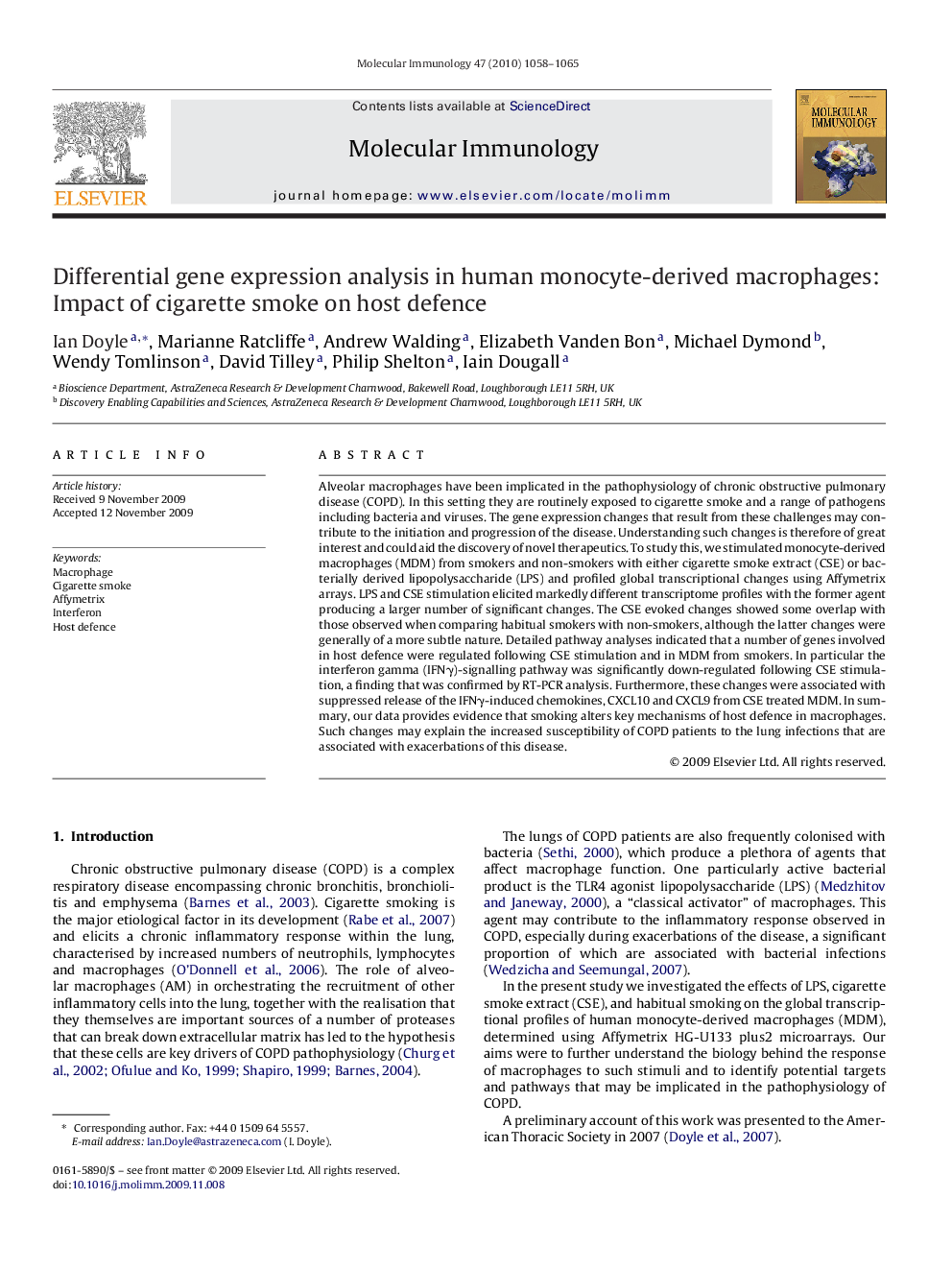| Article ID | Journal | Published Year | Pages | File Type |
|---|---|---|---|---|
| 5917959 | Molecular Immunology | 2010 | 8 Pages |
Alveolar macrophages have been implicated in the pathophysiology of chronic obstructive pulmonary disease (COPD). In this setting they are routinely exposed to cigarette smoke and a range of pathogens including bacteria and viruses. The gene expression changes that result from these challenges may contribute to the initiation and progression of the disease. Understanding such changes is therefore of great interest and could aid the discovery of novel therapeutics. To study this, we stimulated monocyte-derived macrophages (MDM) from smokers and non-smokers with either cigarette smoke extract (CSE) or bacterially derived lipopolysaccharide (LPS) and profiled global transcriptional changes using Affymetrix arrays. LPS and CSE stimulation elicited markedly different transcriptome profiles with the former agent producing a larger number of significant changes. The CSE evoked changes showed some overlap with those observed when comparing habitual smokers with non-smokers, although the latter changes were generally of a more subtle nature. Detailed pathway analyses indicated that a number of genes involved in host defence were regulated following CSE stimulation and in MDM from smokers. In particular the interferon gamma (IFNγ)-signalling pathway was significantly down-regulated following CSE stimulation, a finding that was confirmed by RT-PCR analysis. Furthermore, these changes were associated with suppressed release of the IFNγ-induced chemokines, CXCL10 and CXCL9 from CSE treated MDM. In summary, our data provides evidence that smoking alters key mechanisms of host defence in macrophages. Such changes may explain the increased susceptibility of COPD patients to the lung infections that are associated with exacerbations of this disease.
